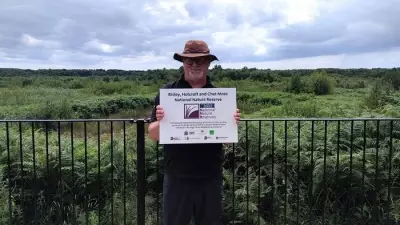
Deadly Bird Flu Confirmed in Midlands Village
The government's Animal and Plant Health Agency has confirmed a serious outbreak of highly pathogenic avian influenza H5N1 at a commercial poultry premises near Hallow in Worcestershire. The discovery was made on Saturday, 9th November 2025, prompting immediate action from authorities.
Emergency Measures Implemented
In response to the confirmed case, the Department for Environment, Food and Rural Affairs has taken decisive action. A 3km protection zone and a 10km surveillance zone have been established around the affected site. All poultry at the infected premises will be humanely culled to prevent further spread of the highly infectious disease.
The agency has issued a strong warning to all bird keepers, stating they "should remain vigilant and follow stringent biosecurity measures to prevent future outbreaks." These measures are particularly crucial for commercial operations and anyone keeping more than 50 birds.
Multiple Outbreaks Across England
The Worcestershire incident is not isolated. On the same day, two additional cases were confirmed at large commercial poultry premises in Norfolk, specifically near Attleborough and Feltwell. This follows earlier cases detected at a turkey farm near Wells-next-the-Sea and another commercial unit near Ormesby St Margaret at the end of October.
Defra has maintained an "avian influenza prevention zone" across Britain, requiring all poultry keepers and sellers to adhere to strict biosecurity and hygiene regulations. Despite the concerning developments, Defra continues to reassure the public that the risk to human health remains minimal.
International Context and Public Advice
The situation in Britain mirrors concerning developments in Europe. France is currently dealing with a severe outbreak that has resulted in the deaths of thousands of migratory cranes. Emergency teams and farmers have culled up to 10,000 cranes in the Grand Est region, with over 5,000 carcasses collected near Lac du Der.
Authorities strongly advise the public against handling or moving any sick or dead wild birds they may encounter. The rapid response to the Worcestershire outbreak forms part of a coordinated effort to contain the virus and protect both the poultry industry and wild bird populations.





